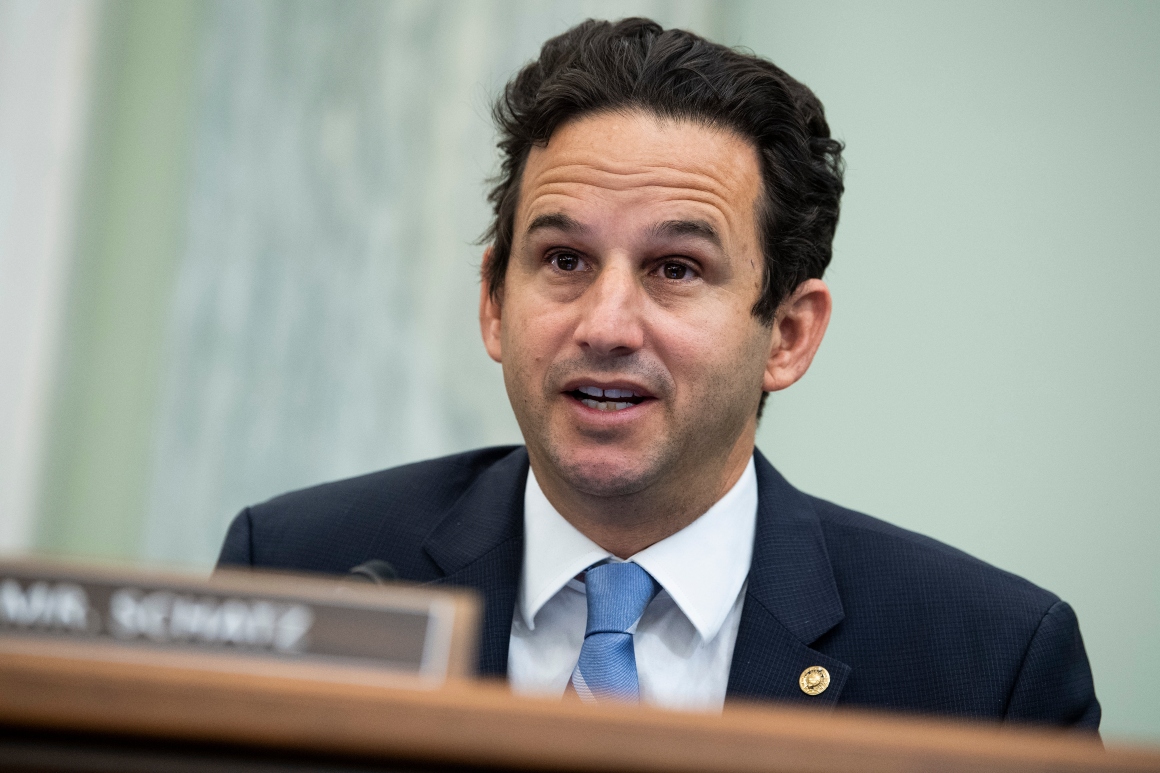The self-inflicted suffering has begun for Senate Democrats trying to muscle through President Joe Biden’s pandemic aid plan without a single Republican vote.
The procedural trick that shrinks the vote hurdle from 60 to 51 is often described as “a powerful budget tool.” But reconciliation is also painful to wield. The first agonizing step: enduring a barrage of amendments from Republicans, who have promised to inflict maximal political pain on Democrats during an unbridled evening of “vote-a-rama” on Thursday.
Democrats, for their part, just want to get it over with. Urging the American public not to watch the bruising legislative “fight” that could keep senators voting late into the night, Sen. Brian Schatz (D-Hawaii) bemoaned the free-for-all amendment process as “the worst part of the United States Senate.”
“We need to remember what this is all about. This is not about a goofy 10-hour or 12-hour or 15-hour process where we stack amendments and try to set each other up, that we’ll somehow trick someone into taking a bad position that can be turned into a campaign advertisement,” Schatz said on the Senate floor. “It is nonsense, and everybody should ignore it if they can. Do anything to not watch vote-a-rama.”
Republicans have teed up hundreds of amendments, including to preserve former President Donald Trump’s border wall, reverse Biden’s action to nix the Keystone XL pipeline and create “deficit-neutral reserve funds” on everything from supporting resources for police to prohibiting “sex-selective abortion.”
That public hazing is Senate tradition, the price the majority party pays to approve a budget resolution — an essential first move in bypassing the filibuster and passing major policy changes with a simple majority, the way Democrats did to enact Obamacare and Republicans did to achieve the 2017 tax cuts. This time the tough votes and potential all-nighter are the dreaded down payment on another giant legislative dream: the new president’s $1.9 trillion relief package.
The Senate’s most robust “vote-a-rama” was in 2008, when senators voted on 44 amendments. In 2013, the process dragged on until past 5 a.m. As of Wednesday night, Republicans had already readied more than 400 amendments — signaling a brutal evening of speeches and votes ahead.
But the hard work to employ the power of reconciliation will not end when the marathon amendment process winds down, the budget resolution is adopted and senators’ resting cots are hauled away after a night of “yeas” and “nays.”
If Democrats do decide to use reconciliation, they will have to carefully craft their bill to ensure the Senate parliamentarian agrees the policies qualify under the special budget rules and will likely have to ditch some provisions to make it work. Then comes the task of getting all Senate Democrats to vote for final passage, as well as more than 200 lawmakers in the House, where Democrats hold only a 10-vote majority over the GOP.
“The biggest challenge that the Democrats have is staying united. They can’t help themselves,” Rep. Jason Smith (R-Mo.), ranking Republican on the House Budget Committee, said in an interview.
Indeed, progressive Democrats are pressing their leaders to include other policies that could make it difficult to attract the votes of centrists in the party for final passage of the pandemic relief package, including an increase in the federal minimum wage and tax hikes for corporations and the highest-earning Americans.
“That’s gonna be their problem,” Smith said. “Get a bag of popcorn because it can be interesting watching the Democrats fight within themselves.”
Even if the aid package clears Congress through reconciliation, the headache of using the budget tool continues. As Republicans most recently experienced after the 2017 tax overhaul, the maneuver triggers automatic cuts to Medicare and other safety net programs. While Congress has continually voted later to avoid those reductions, Democrats will need Republican votes in the Senate to avert such a cliff.
On Thursday, the reconciliation challenges will begin for centrist Democrats. As Schatz lamented in his foreboding preamble to “vote-a-rama,” many of the amendments Democrats will be forced to vote on could become fodder for campaign attack ads. Because Democrats hold only 51 votes in the Senate, including Vice President Kamala Harris, more moderate Democrats will be especially torn as they face votes on amendments Republicans have crafted to put them in a pinch.
“Senate Republicans will be ready and waiting with a host of amendments to improve the rushed procedural step that’s being jammed through,” Senate Minority Leader Mitch McConnell said on the floor.
“We’ll be getting senators on the record about whether taxpayers should fund checks for illegal immigrants, whether Democrats should raise taxes on small businesses in the midst of this historic crisis and whether generous federal funding should pour into school districts where the unions refuse to let schools open,” McConnell said. “And this is just a small taste.”





















